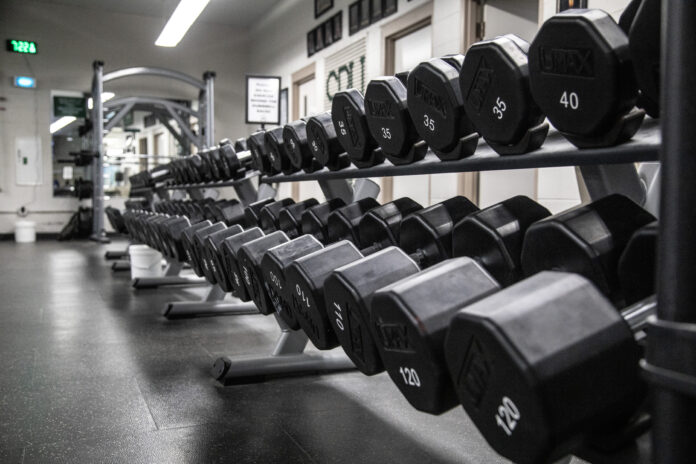SRU has harbored a culture of students who enjoy exercise since the Aebersold Recreational Center was created in 1999. This includes bodybuilders and powerlifters who claim they have found community within their sports.
Modifying yourself physically requires several types of effort. Those looking to build muscle must eat, move and manage their time in a very specific way in order to achieve their goals.
“I have done multiple sports my whole life and [lifting] is the most grueling sport I’ve ever participated in…there’s a lot of misconceptions and taboos surrounding the sport. There’s so much more that goes into it [than posing],” the winner of Miss SRU Figure 2024, a junior named Taylor Kline, said.
Building muscle involves a particular diet. Students report finding options on campus, but still feeling limited at times.
Getting enough protein was difficult leading up to this year’s bodybuilding competition, according to Kline.
“I ended up doing a lot of grocery shopping on my own in order to eat cleanly because it was just so hard with campus food,” she said. “My options were pretty limited to the True Balance station and the rice bowls from Rocky’s, but even those were pretty dicey because you can’t weigh them and weighing your food and being precise is very important when you’re bodybuilding.”
The treasurer of Rock Powerlifting, Mario Fontanazza, said that healthy options are available if you look for them.
“Adjusting to the food options here is interesting because your freshman year you get tempted by Boozel, just eat everything you can… biggest part’s just resisting the temptation to go over to and eat the desserts,” he said.
He claims to have found food that works for him at Boozel, such as burgers without the buns and whole wheat pasta.
“I think it can be harder than buying your own groceries because you have more control in your day to day, but not terrible to eat a healthy well balanced diet,” Fontanazzo said. “It provides good opportunity to cheat on your diet to ease a craving or for mental health purposes.”
Both bodybuilders and powerlifters are prevalent at SRU. Though the groups often overlap, there are differences between the two exercise styles.
“Once’s more focused on max strength and bodybuilding is more focused on the hypertrophy and the definition of the muscle,” the president of Rock Powerlifting, Jacob Brush, said.
Fontanazzo said bodybuilding is “more of an art form” than powerlifting.
Members of both groups report finding a supportive environment in the exercise community on campus.
“It’s one of the best ways that I’ve met a lot of my close friends,” Kline said. “I’d say the lifting scene is incredibly positive and uplifting for people.”
Fontanazzo and Brush agreed that the space feels positive, though acknowledged that body image issues may appear for those who bodybuild.
“I know sometimes when it comes to bodybuilding, you can look in the mirror and your mind does play tricks on you and makes you feel a lot crappier about how you look. You can look amazing, but you get that dysmorphia in a sense,” Brush said.
Still, they have only positive things to say about lifting and the other people who do it.
“It’s drastically improved my mental health,” Brush said. “We’re individuals on a team so we’re competing independently, but you have like a village of support behind you every time you go to step on that platform and it just means the world.”
The two groups host a fitness exposition weekend where only SRU students can enter the bodybuilding portion, but anyone 16 and up may enter the powerlifting competition.
“There’s a lot of collaboration and community between the two clubs,” Brush said. “They do go hand in hand, they have the same principle as the very bottom of them is to get you bigger, getting stronger.”
Rock Powerlifting focuses on competing in national competitions as well as hosting mock meets for interested members.
They say all are welcome and that interested parties should email msf1005@sru.edu.
“I would say my biggest piece of advice would be if you’re considering it, do it… it’s never too late to get into,” Fontanazzo said, “I think that everyone gets nervous and worries about what could go wrong, as opposed to what could go right.”








